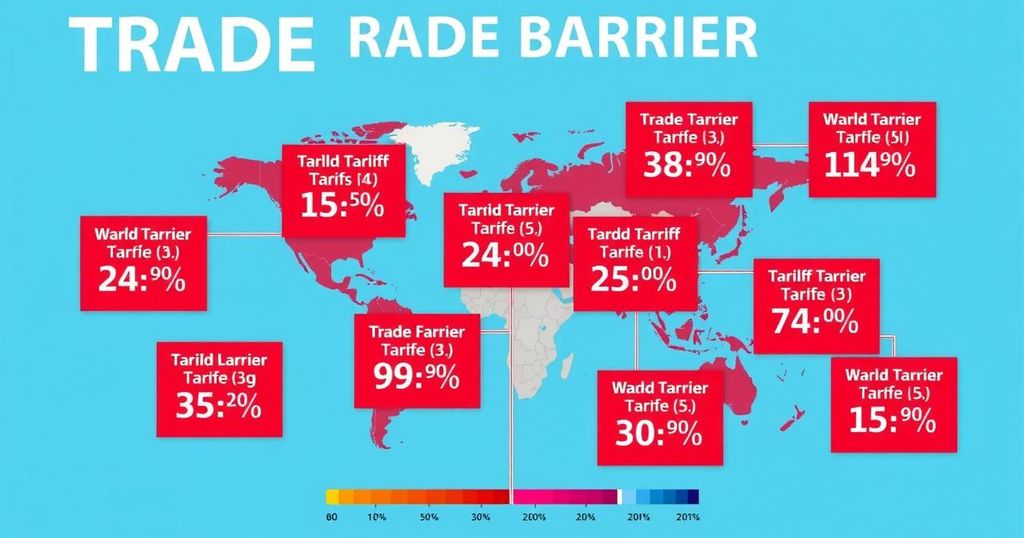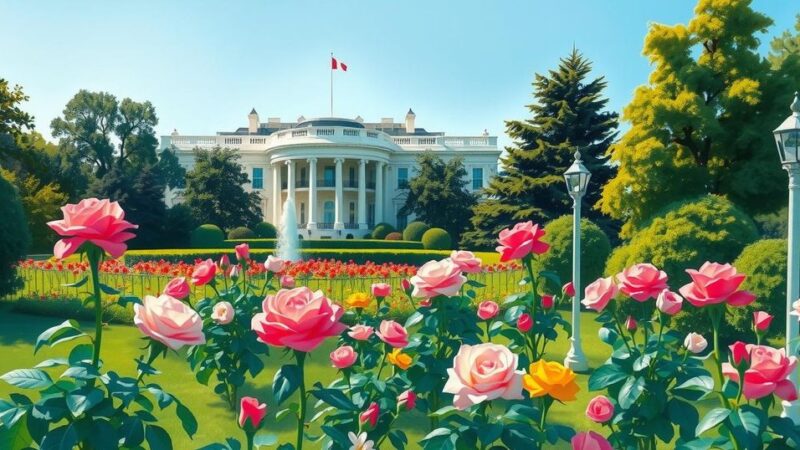Amid President Trump’s upcoming “Liberation Day,” the White House confirmed no exemptions on reciprocal tariffs. Karoline Leavitt highlighted high tariffs imposed on American products by various countries. The Trump administration aims to address unfair trade practices through these new tariffs, releasing a report on foreign trade barriers as part of this effort.
In anticipation of President Donald Trump’s “Liberation Day” tariff announcements, White House spokesperson Karoline Leavitt has clarified that there will not be exemptions on reciprocal tariffs. During a recent briefing, Ms. Leavitt highlighted the tariffs imposed on US products by other nations, emphasizing the need to halt what she termed “unfair trade practices.” She announced that the President plans to impose these tariffs during an event scheduled for April 2, which he has dubbed “Liberation Day”.
Ms. Leavitt detailed the high tariff rates on American goods set by various countries, stating, “We have a 700 percent tariff from Japan on rice, 50 percent from the EU on American dairy, and 100 percent from India on agricultural products.” She noted that such tariffs significantly hinder American product imports, negatively affecting American businesses and labor. Her statements underscored the administration’s commitment to achieving trade reciprocity and fairness in international trade agreements.
The administration also released a comprehensive report detailing foreign trade barriers, highlighting tariffs and non-tariff obstacles to US exports. According to US Trade Representative Jamieson Greer, no modern President has acknowledged the extensive foreign trade barriers faced by American exporters as much as President Trump has. The report included various trade barriers, such as regulatory restrictions on genetically modified crops and agricultural imports.
Key points in the report feature objections to the EU’s requirement for recycled materials in plastic packaging and Canada’s stringent dairy production limits, which impose tariffs as high as 298 percent on butter. The report also addressed VAT complexities in countries like Argentina and Mexico, which further complicate US imports. The specifics of how these findings will influence the implementation of reciprocal tariffs remain uncertain.
The initiatives articulated by President Trump’s administration regarding reciprocal tariffs aim to rectify perceived imbalances in international trade practices. White House spokesperson Karoline Leavitt reinforced the administration’s determination to address fair trade issues, emphasizing that several countries impose excessive tariff rates on specific American goods. Additionally, the recently released trade barriers report serves as a foundational document for the administration’s ongoing efforts to ensure fair treatment for American exporters and restore competitive equity in the global market.
Original Source: www.ndtv.com






